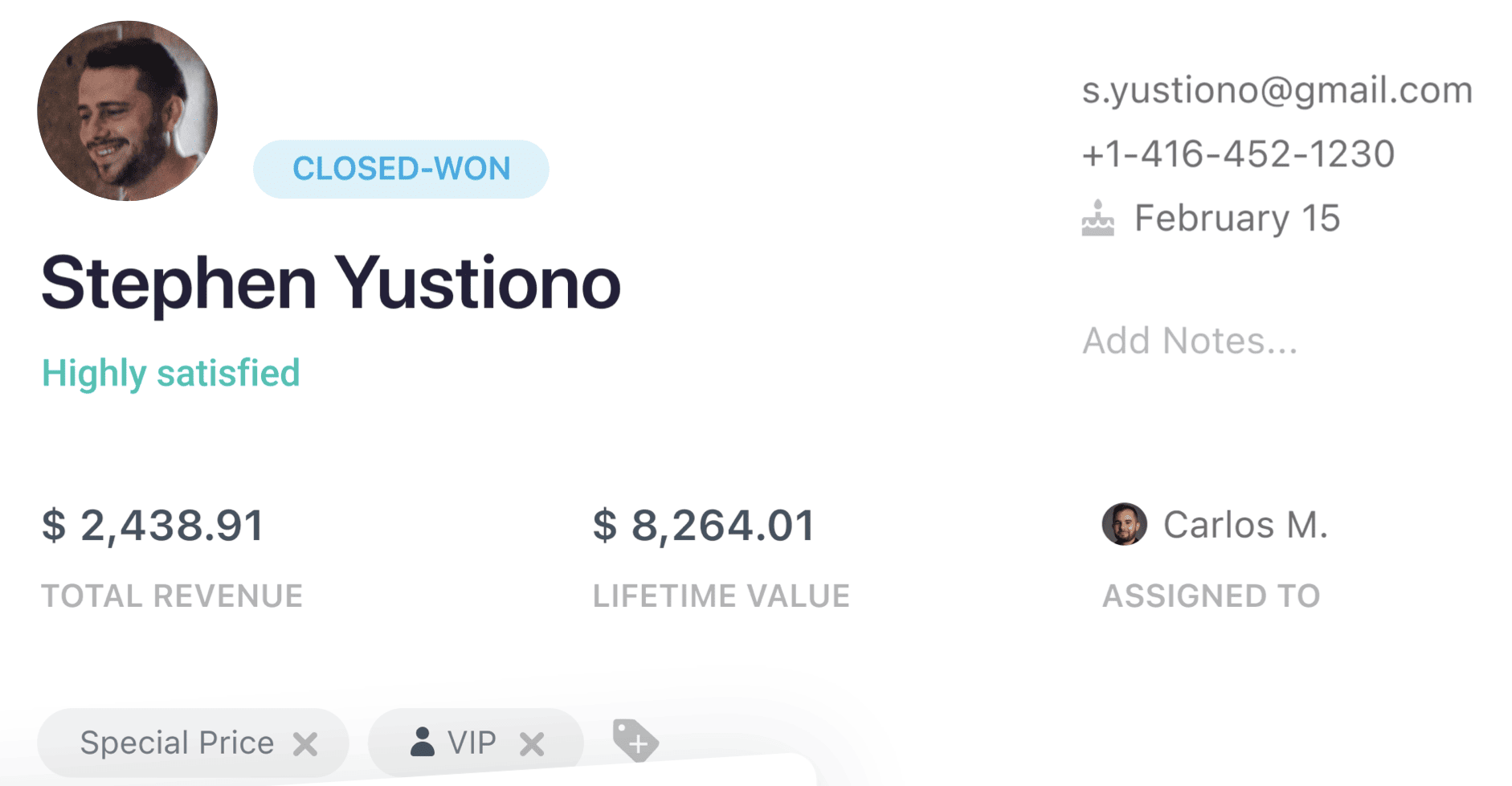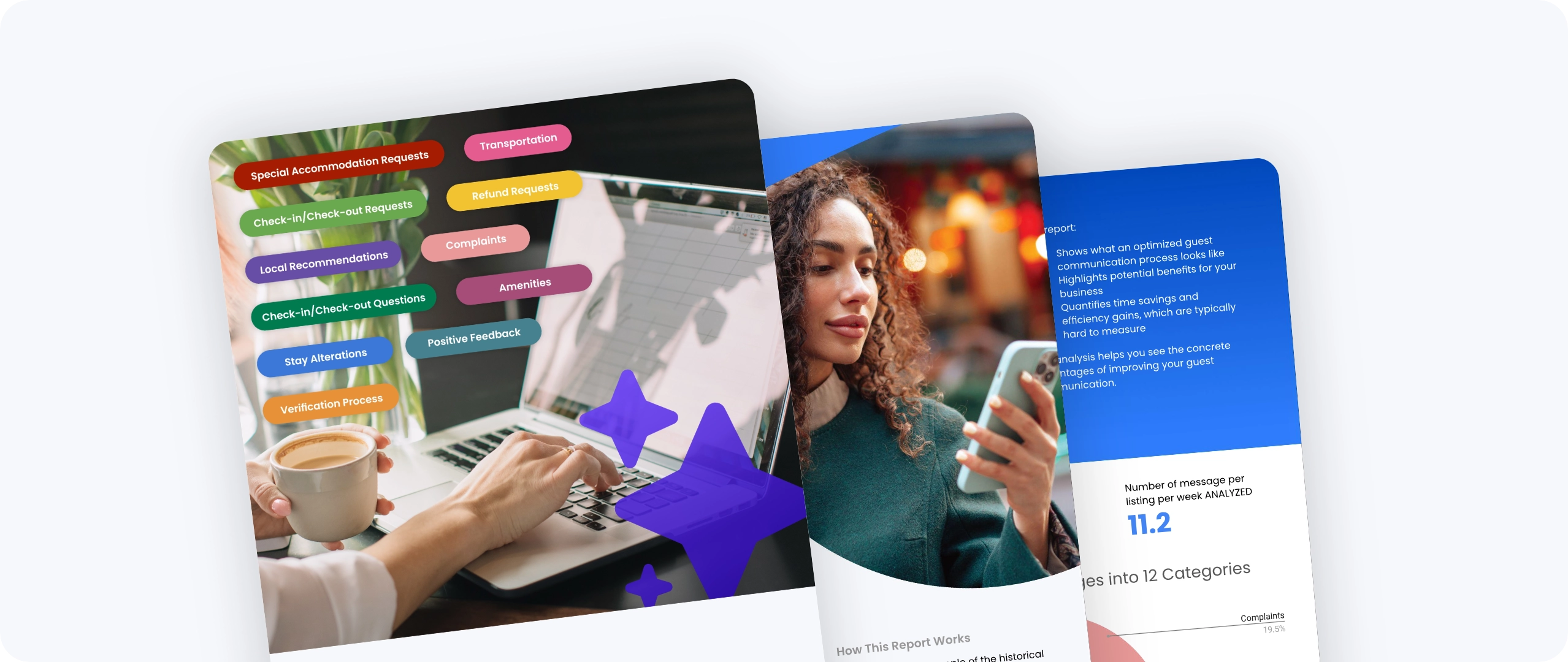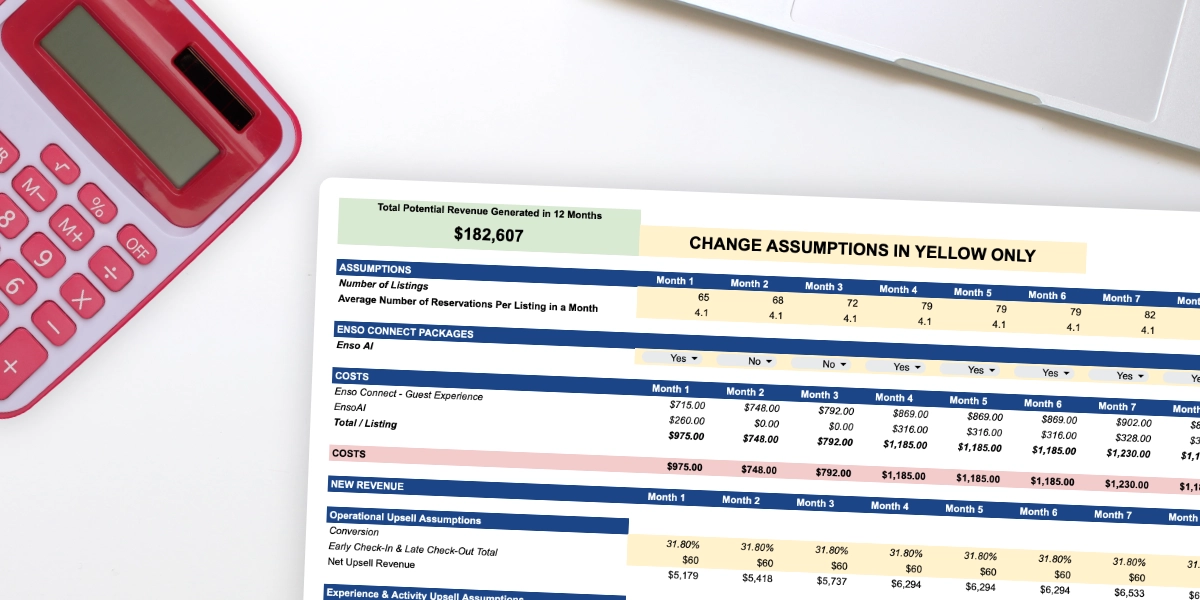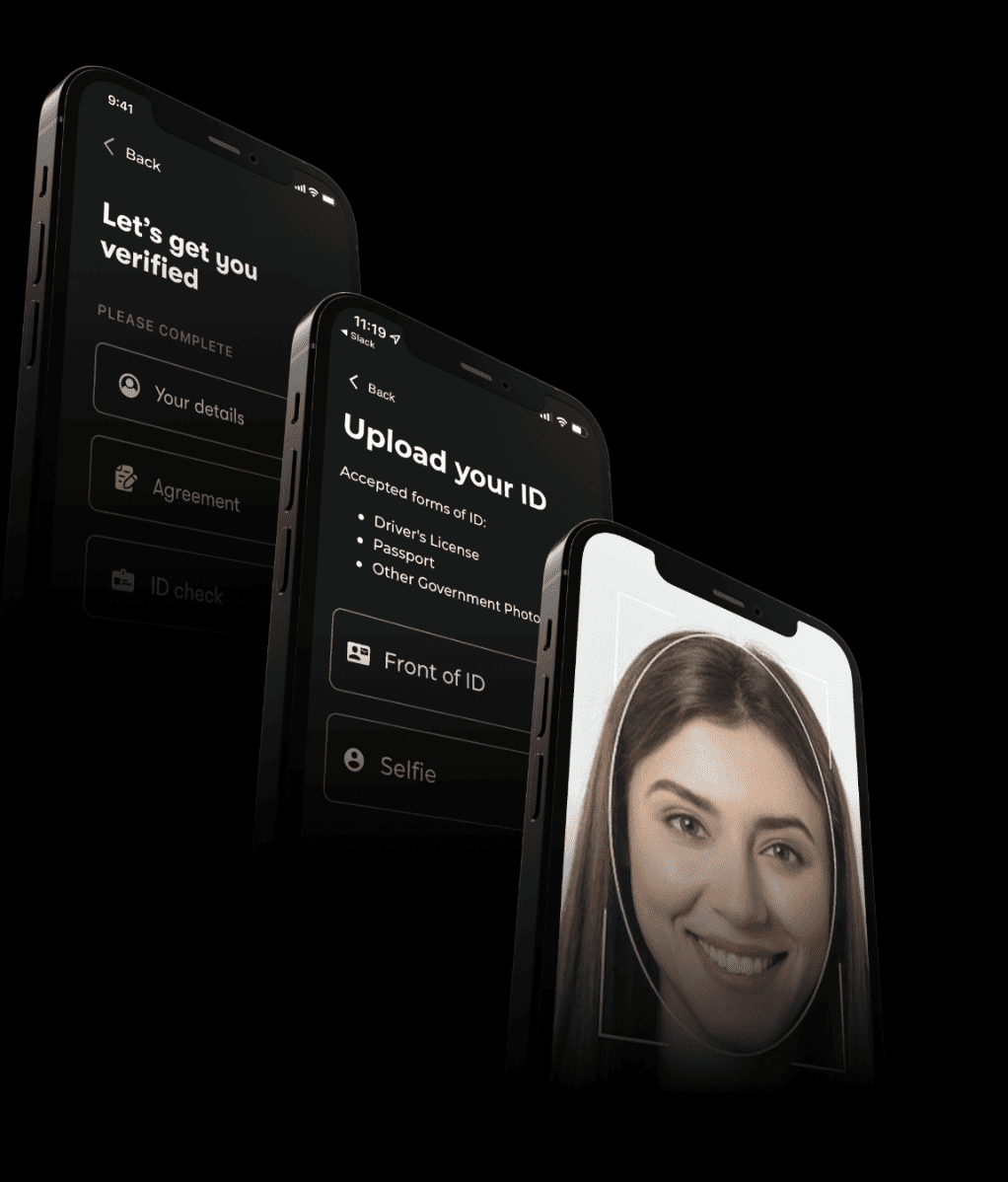You’re collecting your guest data – great! But do you have a guest data strategy?
Do you realize what exactly you need to know about your guests? And why do you need this information? We looked into the questions of hospitality guest data, main challenges, best practices and different ways to utilize it in your vacation rental or boutique hotel business.
The importance of guest data strategy in hospitality industry
Why do we need to know our guests? To serve them better, encourage them to return and book directly, as well as increase revenue per guest by offering right add-ons at the right time.
Own the relationship
With the restrictions applied to third-party data in recent years, the importance of direct data sources grew tremendously. Social media and search engines are underdelivering on reach and traffic, while keeping businesses’ followers and subscribers at their mercy. The same applies to online travel agency platforms. If these platforms for whatever reason decide to not favour or punish a business, this puts at risk the company’s connections with its communities.
By creating and managing a solid and proprietary database with contact information of your prospects and guests, you can safeguard the bond between your brand and your audience. Many marketers are talking about the idea of “building a house on a rented land” and how to avoid the risks it represents. Meaning to reduce the data dependency on social media, podcasts and search platforms, as well as OTAs for the short-term rental sector, and collect first-party data to own the relationship with your audience.
For hospitality businesses this can be achieved by building websites with their own booking engine or at least not being tied to the PMS website builder. The industry professionals should find effective ways to collect high-quality data throughout the customer journey and build their own database with clean data to directly communicate with their audience.
Provide a great guest experience, while increasing revenue
While having your guests’ contacts allows your sales team to generate bookings, with more details you can personalize their stay. Greeting the guests by their names is a first step, but offering personalized and curated services will directly drive more revenue to your business. For example, high-quality wifi and desk arrangements for business travelers, kids-friendly services for families, pet-friendly features for dog owners, etc.
Here we are using the analogy of guest experience being a vacation rental sales funnel. Meaning the way guests experience their stay at your property is what makes or breaks your next sell. This is where your marketing team can create tailored offers, curate add-ons, partner with local vendors, etc. You can get creative with ways to provide elevated customer experience, using the real time data you have about the people you are hosting. Consumers are willing to pay a premium for convenience, luxury, saved time. Knowing their needs and preferences you can offer upsells and cross-sells at the time when they really need and appreciate your offers.

How hotels handle guest data
Hospitality is built on meaningful relationships between guests and hosts or vacation operators.
The hotel industry uses different systems to collect and manage hight quality data about their customers. The common goal is to increase customer satisfaction and guest loyalty, identify business opportunities and make operational and distribution decisions.
Hotel operators collect basic booking information, contact information, historical data, customer behavior and preferences to build a robust data strategy. They use hotel’s pms, property management software, and CRM systems for customer data management. This provides valuable insight for targeted marketing campaigns, elevated guest experience, effective customer relationship management, etc.
How short-term rentals handle guest data
We have asked vacation rental managers to share their guest data practices, does and don’ts and plans for the next year. There are a couple of interesting findings:
1. 22.2% of property managers are not collecting guest data
While the percentage of missed opportunities may be relatively low, each one represents a potential loss in repeat bookings, a diminished guest experience, and additional revenue. Hospitality businesses that do not actively manage and leverage their guest data are essentially leaving money on the table.
Failing to utilize guest data means missing out on valuable insights that could drive personalized interactions, enhance guest satisfaction, and increase the likelihood of repeat visits. By not capitalizing on this data, businesses forgo opportunities to tailor their offerings and marketing efforts to better meet guest preferences, ultimately impacting their bottom line.
Effective management of guest data enables hospitality businesses to optimize their strategies, identify trends, and make informed decisions that can lead to improved guest retention and revenue growth. Embracing data-driven approaches ensures that businesses are not only enhancing the guest experience but also maximizing their revenue potential and securing a competitive edge in the industry.
2. More than a half (55%) of the vacation rental managers are collecting their guest data only from the person who made the booking.
These businesses are missing out on significant opportunities to attract additional guests to their property. By not obtaining and leveraging data from current in-stay guests, they are potentially limiting their reach and growth.
Capturing and utilizing guest data can enhance marketing efforts and promotional strategies, allowing businesses to extend their reach by at least 50%. This additional data provides valuable insights into guest preferences and behaviors, enabling operators to tailor their outreach and attract similar profiles of guests.
For instance, understanding the demographics and interests of current guests can help in crafting targeted marketing campaigns, optimizing offers, and improving referral programs. By tapping into this wealth of information, hospitality businesses can not only increase their visibility but also drive more bookings, thereby significantly boosting their occupancy rates and revenue.
In essence, effective data management and utilization can lead to substantial growth in guest numbers and overall business success, making it a crucial component of modern hospitality operations.
3. 22% obtain guest data by sending travelers between 3 and 5+ different links pre-arrival
Overwhelming guests with excessive emails, links, and messages can lead to a frustrating experience, creating friction and potentially resulting in negative reviews. It’s crucial to ensure that communication is streamlined and user-friendly, fostering a positive interaction with guests.
Creating a comprehensive guest portal is a highly effective solution. This centralized platform consolidates all the information guests need, such as check-in details, local recommendations, and booking updates, while also enabling them to provide necessary data and feedback effortlessly. By offering a single, intuitive interface for managing their stay, the guest portal enhances the overall experience and minimizes the risk of miscommunication.
A well-designed guest portal mirrors the seamless, user-centric experiences that consumers have come to expect from leading digital retailers and service providers like Amazon, Uber, and Airbnb. Just as these platforms excel in providing frictionless digital interactions, a guest portal can deliver a similar level of convenience and satisfaction in the hospitality industry.
Implementing such a portal not only improves guest satisfaction but also streamlines operations for property managers, ensuring that communication is efficient and effective, and ultimately contributing to a more enjoyable stay for guests.
The main data challenges in the vacation rental industry
Obtaining data
More and more short-term rental operators realize the importance of guest data. While big companies appoint chief data officers to handle the data work, smaller businesses adopt common practices and learn to build a guest data strategy. Collecting contact details, asking questions, gathering other key points from reliable sources, such as documentation submitted at check-in, analyzing conversations. All these options rely on technology to be sustainable in busy vacation rental businesses. There are many tech solution, allowing property managers and hosts to collect guest information. Website forms, guest apps, third-party apps, Cloud mesh Wifi systems, PMSs – many pieces of software to navigate, learn and integrate.
Using data
Solving one challenge of obtaining data, leads to another. There is so much data that operators don’t know how to use it. Often times the information “sits” in different locations across the company’s tech stack but is not put to a good use. Operators don’t know how to access, extract and organize the valuable data or are just too busy to do it manually.
Data governance and technology
Companies lack data governance when they have it available in their systems. Most of the times, it is spread between different sources and systems. Big brands are using customer relationship management software to gather, store, process and apply data to make business decisions. Smaller businesses don’t have access to popular CRM solutions because of their complexity and costs. Also many CRM solutions can’t provide the level of customization unique hospitality businesses need to connect with their guests.
5 steps for a vacation rental guest data strategy to sell and serve better
1. Define your goals
What do you want?
- Vet people staying at your property?
- Being able to market to them in future?
- Personalize upsell offers?
- Improve the experience?
2. Identify your resources
What do you have?
- Do you have a team or tools to collect guest data?
- What kind of services and add-ons can you offer? Etc.
3. Decide what data do you need
- First Name and Last Name to personalize communication
- Email and or phone number to reach them directly
- Travel purpose, age, family status, etc – to tailor offers and timing
- Lifetime value – to know how much you can spend to bring them back
4. Create the process to collect the data you need
- Get past the gatekeepers like OTAs, Google, social platforms by having your own data collection process: lead magnets for prospects, check-in forms for guests, surveys for past guests.
- Extract information from your systems: how long did the guest stay, how much did they spend, what did they request, purchase, etc.
5. Manage the data you have
- Organize the data you have in a spreadsheet, CRM or any tool allowing you to analyze your findings and translate them in an actionable plan.
- Make data-driven decisions and implement changes according to the takeaways.
- You can then look at ways to automate this process using the right technology to support this endeavor.
Five types of data you should collect from your guests
1. Contact Details
To personalize communication and enhance services, it is essential to collect key guest information such as first and last names, physical addresses, phone numbers, and email addresses. These details allow for more tailored and effective interactions, ensuring that guests feel valued and their needs are promptly addressed.
It’s best to collect this information during the check-in or verification stage, as this ensures that data is accurate and up-to-date. By integrating these details into your guest management system, you can facilitate personalized communication, send relevant updates, and offer customized recommendations and services throughout their stay.
Gathering this information at the appropriate time not only improves the guest experience but also supports efficient operational management, helping to streamline processes and enhance overall guest satisfaction.
2. Guest Demographics
Collecting demographic details such as nationality, age, gender, marital status, parental status, and travel reason is crucial for crafting targeted and effective communication and offers. This information enables you to tailor your messaging to align with the unique needs and preferences of each guest.
For example, a business traveler may benefit from offers related to meeting facilities, business services, or extended working hours. In contrast, a solo traveler might appreciate personalized recommendations for local attractions, dining options, or social events tailored to individuals. Similarly, guests traveling with families would find value in offers such as family-friendly activities, child care services, or special rates for extended stays.
Understanding the diverse reasons behind each guest’s stay allows you to create highly relevant and engaging experiences, leading to improved satisfaction and increased loyalty. By segmenting your communications based on these demographic factors, you can ensure that each guest receives content and offers that resonate with their specific circumstances, ultimately enhancing their overall experience.
3. Guest Preferences
Take note of your customers’ preferences during check-in or throughout their stay. Gathering details about their preferences in amenities, meals, beverages, and available activities can significantly enhance their current experience and set the stage for future stays.
For instance, if a guest prefers a specific type of pillow or has dietary restrictions, noting these preferences allows you to cater to their needs more effectively during their current visit. Additionally, this information provides valuable insights for personalizing their future experiences.
By recording preferences such as favorite meals or preferred room settings, you can anticipate their needs and make tailored recommendations for future stays. This level of personalization not only improves guest satisfaction but also fosters loyalty, as guests appreciate the attention to detail and the effort to make their stay as comfortable and enjoyable as possible.
Maintaining a record of these preferences ensures that you can offer a consistently high level of service and create memorable experiences that encourage guests to return.
4. Usage and Historical Data
Collecting information on trip type, frequency of visits, and average spending per trip can provide valuable insights into your guests’ behaviors and preferences. This data is instrumental in crafting tailored promotions and offers that resonate with individual guests, enhancing their overall experience and increasing their appreciation for your attention to detail.
Understanding the type of trips your guests are taking—whether for business, leisure, or special events—allows you to design promotions that align with their needs. For example, business travelers might appreciate discounts on extended stays or access to meeting facilities, while leisure travelers might be interested in special packages for local attractions or dining experiences.
Additionally, knowing the frequency of their visits and their average spending can help you create loyalty programs or exclusive offers that cater to their spending patterns. Guests who visit frequently might benefit from special rewards or membership perks, while those with higher spending might be offered premium services or upgrades.
By leveraging this information to develop targeted promotions, you not only enhance guest satisfaction but also demonstrate a thoughtful approach to their individual preferences, fostering a stronger connection and encouraging repeat visits.
5. Experiential Data
Store and utilize the feedback collected from prior surveys and post-stay reviews to continually enhance your service and guest experience. This feedback provides invaluable insights into guests’ satisfaction levels, preferences, and areas needing improvement.
By systematically analyzing this data, you can identify common themes and trends that highlight what your guests appreciate and what aspects of their experience might need adjustment. For instance, if multiple guests mention issues with room cleanliness or the need for more diverse amenities, you can address these concerns to improve your offerings.
Incorporate actionable feedback into your operational strategies to refine services, enhance guest satisfaction, and resolve recurring issues. This proactive approach demonstrates your commitment to continuous improvement and can significantly boost guest loyalty and positive reviews.
Additionally, regularly reviewing and acting on feedback helps in anticipating guest needs and adjusting your offerings to better meet their expectations. This ongoing process of refinement based on guest feedback ensures that you stay aligned with their preferences and maintain a high standard of service.
Three ways to utilize guest data to increase revenue
How does the right guest data strategy increase your vacation rental revenue? Here are different use cases for utilizing your guest data to increase revenue:
Upsells and cross-sells
Offer personalized add on services to increase revenue per guest and increase guest satisfaction
Targeted post-stay marketing
Get more return guests with personalized post-stay touch points and tailored offers to your guests
Data-driven pricing
Knowing the potential value of the guests and their booking behavior, you can tailor the discounts to attract your best guests.
There are many more ways in which knowing your guests impacts your vacation rental revenue. It increases your guest satisfaction, drives better reviews, even helps create efficiencies in your business operations.
Contact us to see how Enso Connect can solidify and streamline your guest data strategy grow your business and increase revenue.





